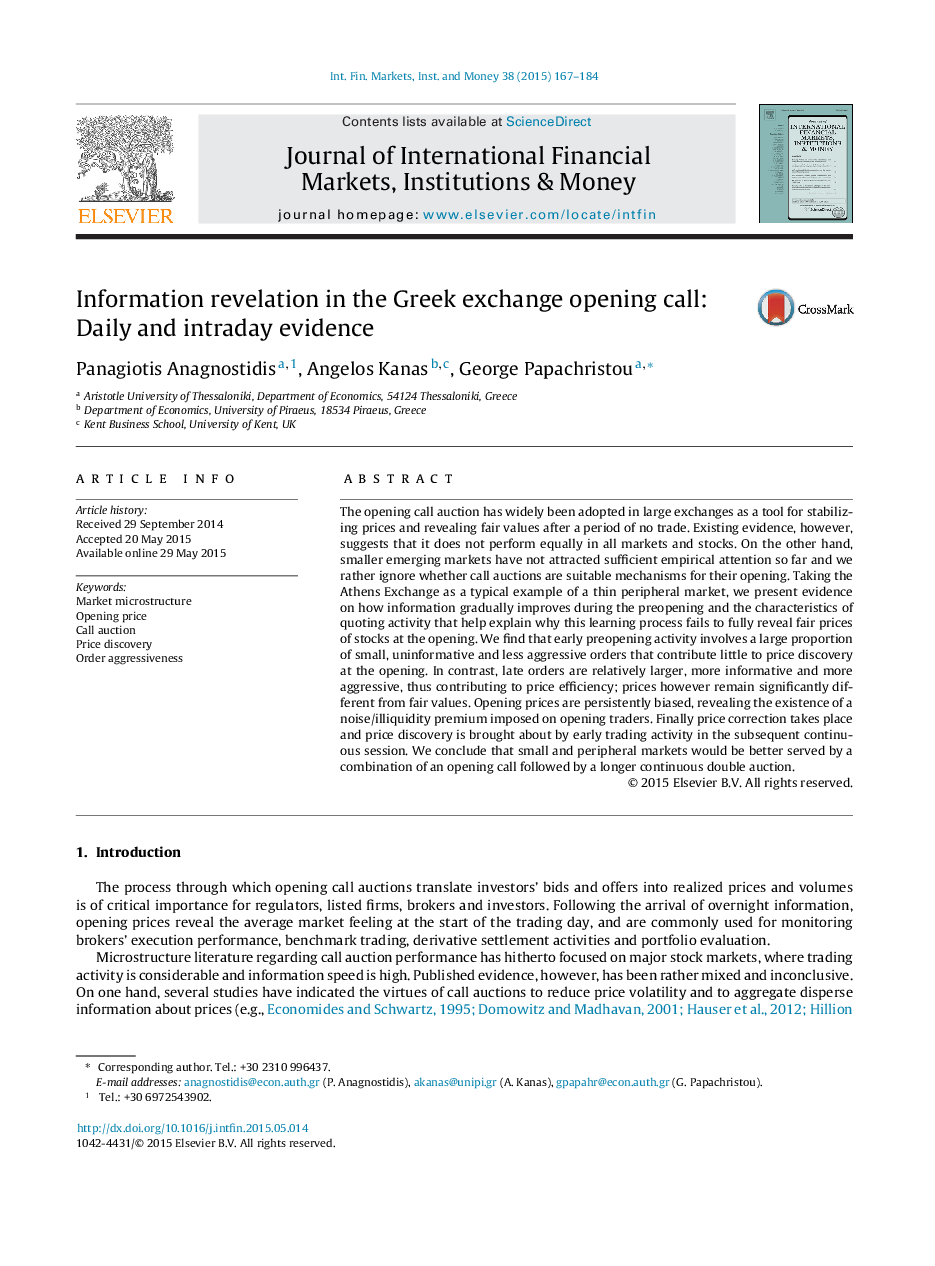| Article ID | Journal | Published Year | Pages | File Type |
|---|---|---|---|---|
| 963429 | Journal of International Financial Markets, Institutions and Money | 2015 | 18 Pages |
Abstract
The opening call auction has widely been adopted in large exchanges as a tool for stabilizing prices and revealing fair values after a period of no trade. Existing evidence, however, suggests that it does not perform equally in all markets and stocks. On the other hand, smaller emerging markets have not attracted sufficient empirical attention so far and we rather ignore whether call auctions are suitable mechanisms for their opening. Taking the Athens Exchange as a typical example of a thin peripheral market, we present evidence on how information gradually improves during the preopening and the characteristics of quoting activity that help explain why this learning process fails to fully reveal fair prices of stocks at the opening. We find that early preopening activity involves a large proportion of small, uninformative and less aggressive orders that contribute little to price discovery at the opening. In contrast, late orders are relatively larger, more informative and more aggressive, thus contributing to price efficiency; prices however remain significantly different from fair values. Opening prices are persistently biased, revealing the existence of a noise/illiquidity premium imposed on opening traders. Finally price correction takes place and price discovery is brought about by early trading activity in the subsequent continuous session. We conclude that small and peripheral markets would be better served by a combination of an opening call followed by a longer continuous double auction.
Related Topics
Social Sciences and Humanities
Economics, Econometrics and Finance
Economics and Econometrics
Authors
Panagiotis Anagnostidis, Angelos Kanas, George Papachristou,
